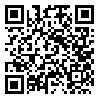Volume 5, Issue 4 (3-2023)
2023, 5(4): 0-0 |
Back to browse issues page
Ethics code: ir.medilam.rec.1395.208
Download citation:
BibTeX | RIS | EndNote | Medlars | ProCite | Reference Manager | RefWorks
Send citation to:



BibTeX | RIS | EndNote | Medlars | ProCite | Reference Manager | RefWorks
Send citation to:
Ghazanfari Z, Daneshvar S, Aivazi A. Effects of instruction on preventive behaviors of head lice infestation among female primary school children at Eyvan city in 2016. Journal title 2023; 5 (4)
URL: http://newresearch.medilam.ac.ir/article-1-1168-en.html
URL: http://newresearch.medilam.ac.ir/article-1-1168-en.html
Abstract: (2178 Views)
Abstract
Background: Despite advances in health and medical education, head lice infestation as a common public health problem that is most prevalent in primary school children. The aim of this study was to evaluate the effect of health education program on preventive behaviors of head lice infestation among primary school girls at Eyvan city in 2016.
Methods: This study was an experimental study which was conducted in 2016 on girl primary school students in Eyvan, Ilam, Iran. Data collection tools were a researcher-made questionnaire. Two girl primary schools were randomly selected from public primary schools and randomly allocated to case (N=95) group and control (N=62) group. Educational intervention was designed based health belief model in 5-sessions 30-mintues for the case group. One month after the intervention, the students in both groups were evaluated. Data was analyzed with SPSS vita independent t-test, pair t-test, X2, correlation and regression.
Results: The two groups had no significant differences in the scores of knowledge, HBM constructs and preventive behavior before the intervention. But, after the intervention, the mean scores of all parameters significantly improved in the case group.
Conclusion: Applying HBM can be an effective strategy to promote preventive behaviors against pediculosis among girl primary school students.
Background: Despite advances in health and medical education, head lice infestation as a common public health problem that is most prevalent in primary school children. The aim of this study was to evaluate the effect of health education program on preventive behaviors of head lice infestation among primary school girls at Eyvan city in 2016.
Methods: This study was an experimental study which was conducted in 2016 on girl primary school students in Eyvan, Ilam, Iran. Data collection tools were a researcher-made questionnaire. Two girl primary schools were randomly selected from public primary schools and randomly allocated to case (N=95) group and control (N=62) group. Educational intervention was designed based health belief model in 5-sessions 30-mintues for the case group. One month after the intervention, the students in both groups were evaluated. Data was analyzed with SPSS vita independent t-test, pair t-test, X2, correlation and regression.
Results: The two groups had no significant differences in the scores of knowledge, HBM constructs and preventive behavior before the intervention. But, after the intervention, the mean scores of all parameters significantly improved in the case group.
Conclusion: Applying HBM can be an effective strategy to promote preventive behaviors against pediculosis among girl primary school students.
Received: 2017/10/7 | Accepted: 2017/10/24 | Published: 2023/03/1
Send email to the proposal executer
| Rights and permissions | |
 | This work is licensed under a Creative Commons Attribution-NonCommercial 4.0 International License. |






